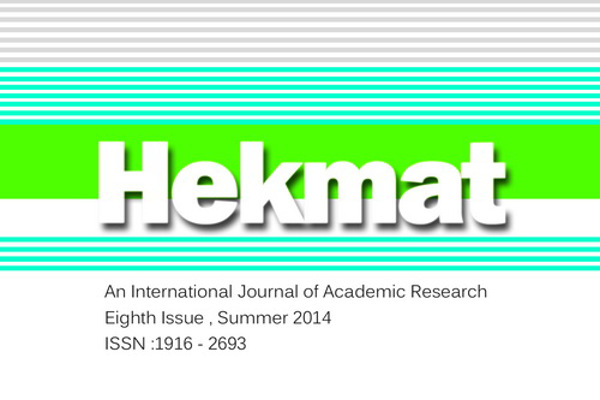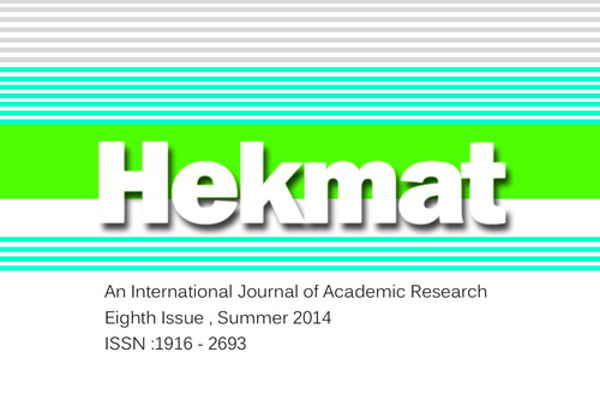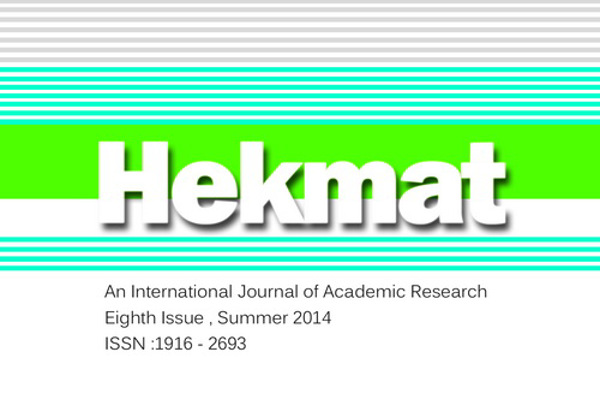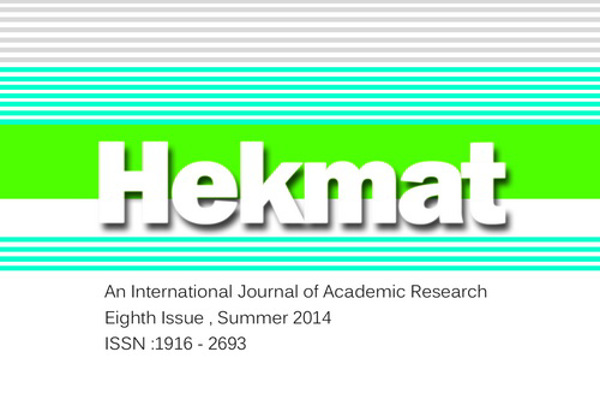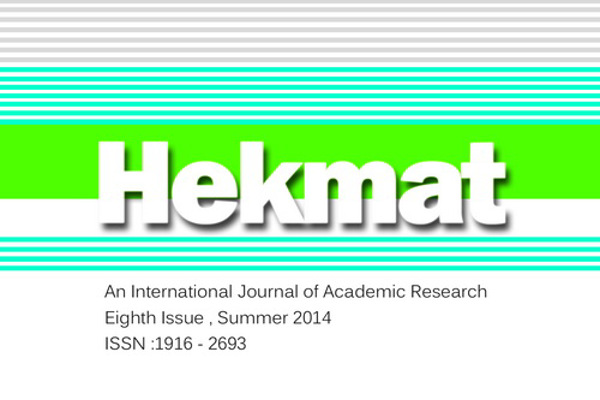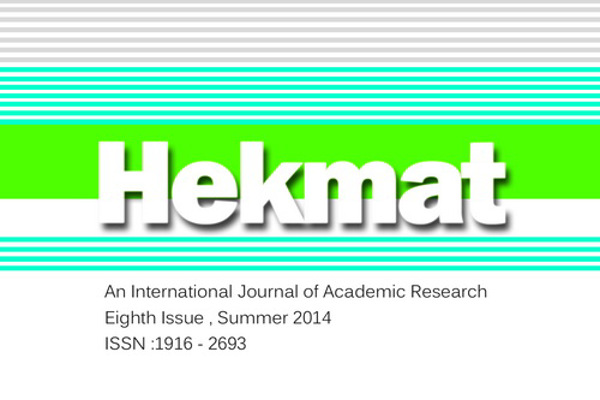Religious Tolerance and the Islamic Method for Achieving Peace and Coexistence among Nations and States / By: Seyed Mehdi Shahrestani
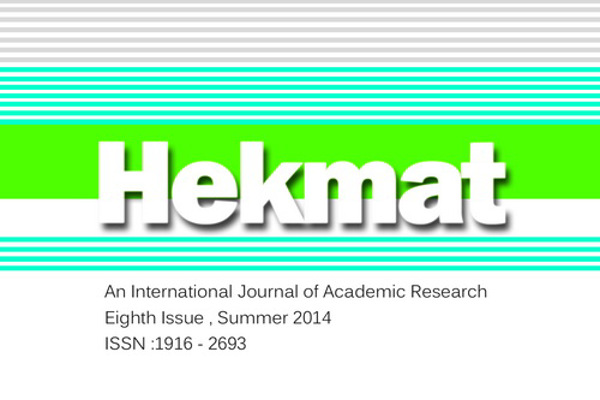
Divine Appreciation of Virtuous Deeds by Followers of All Religions
Contrary to the commonly held belief, the Koran posits that the virtuous deeds of the followers of all religions shall be accepted, preserved, and rewarded by the Almighty God provided that they believe in God and in resurrection, and perform good actions. In verse 69 of Sura Maidah, God says, “From among those who have converted to Islam and those who are Jews, Mandaeans, or Christians, whosoever believes in God and the Day of Judgment and performs virtuous deeds need not worry or grieve”. And in verse 62 of Sura Baqarah, God says, “Indeed, from among those who converted to Islam and those who are Jews, Mandaeans, or Christians, whosoever believes in God and in the Day of Judgment and performs virtuous deeds shall have their reward with the Lord and they need not worry or grieve.”
Divine Commandments concerning Coexistence with Non-Muslims and Treating Them Fairly and Justly
The Koran ordains that the followers of other religions must be given the chance of peaceful living among Muslims and treated fairly and justly without violence and animosity as long as they do not engage in war against Muslims. In verses 7 and 8 of Sura Mumtahanah, we read, “God might probably build friendship between you and those who you considered enemies; and God is able and God is forgiving and compassionate. God does not forbid you from being righteous, kind, and just toward those who do not fight you on the cause of religion and do not expel you from home; verily, God loves the just.” In verse 125 of Sura Nahl, God says: “Call to the path of your Lord with wisdom and sweet preaching and converse with them in the best possible manner; verily, your Lord knows best those who have gone astray and those who are guided”.
Acknowledgment of the Beliefs Common to Muslims and the Followers of Other Heavenly Scriptures
The Koran invites Muslims to concentrate on dialogue with the followers of divine religions based on the common grounds, treating them in the best possible way. In verse 46 of Sura Ankabut, God says, “And do not argue with the followers of heavenly Scriptures except in the best possible manner except those among them who are unjust; tell them we believe in what has been revealed to us and revealed to you; our God and yours is one and the same; and we submit to him”. In verse 64 of Sura Al-I Imran, God says, “Say, you all people of the book! Join us on a common word we all share; that we refrain from worshiping anyone but God, that we do not call partners to Him, that we refrain from taking lords from among us in addition to God; then, if they reject the call, tell them witness that we are Muslims”. In rejection of religious dispute among different faiths and referring these disputes to divine tribunal for settlement, the Koran describes disputes over the righteousness of religions as a sign of ignorance since judgment on this issue is exclusively possible for God: in Sura Baqarah, verse number 113, God says, “The Jews say, ‘the Christians have naught to stand upon’; and the Christians say, ‘the Jews have naught to stand upon.’ Yet, they both recite the book. Like unto their word is what those say who know not; but Allah will judge between them in their quarrel on the Day of Judgment.” In verse number 17 of Sura Hajj, we read, “Those who believe [in the Koran], those who follow the Jewish Scriptures, and the Mandaeans, Christians, Zoroastrians, and polytheists, Allah will judge between them on the Day of Judgment: for, Allah is witness to all things.” And in Sura Kaferun, we read, “O nonbelievers! I do not worship what you worship; you do not worship what I worship; never will I worship that which you worship; never will you worship what I worship; so, let my religion be mine and yours yours.”
Emphasis on Human’s Free Choice regarding Conversion
The Koran declares that submitting to a religion is a matter of free choice. Forcing people to convert to a new faith or to keep the faith inherited from ancestors is equally wrong. From these Koranic precepts, we conclude that what has actually happened in the history of Islam after the demise of the holy Prophet was not in line with Islamic vision. In verse number 256 of Sura Baqarah, the Koran says, “Let there be no compulsion in religion: truth stands out clear from untruth: whoever rejects evil and believes in Allah hath grasped the most trustworthy hand-hold that never breaks. And Allah heareth and knoweth all things.” In verse number 18 of Sura Zomar, we read, “Those who listen to the word, and follow the best [meaning] in it, those are the ones whom Allah has guided, and those are the ones endowed with understanding.” And in verse 170 of Sura Baqarah, God says, “When they are told to ‘Follow what Allah hath revealed,’ they say, ‘Nay! We shall follow the ways of our fathers.’ Even though their fathers were void of wisdom and guidance, nor were they guided?”
Islam reproaches aggression and insulting others calling to taking moderate measures in the face of invasion by others and to patience and forbearance in doing so. In verses number 126 and 127 of Sura Nahl, God says, “And if ye do catch them out, catch them out no worse than they catch you out: but if ye show patience, it is indeed the best [course] for those who are patient. And do thou be patient, for thy patience is but from Allah; nor grieve over them: and distress not thyself because of their plots.” In the verse number 34 of Sura Fussilat, we read, “Nor can goodness and evil be equal. Repel [evil] with what is better: then will he between whom and thee was hatred become as he were thy friend and intimate!” And in verse 83 of Sura Baqarah, God invites people to nice behavior in general: “Speak good [words] to the people.”
The Whole Embracing Divine Mercy
The Koran emphasizes that the holy Prophet of Islam has been appointed by God out of His whole embracing mercy for mankind. The God of Islam treats all the children of Adam equally. His compression is not exclusively for a particular group of people or race. In verse 107 of Sura Anbia, God says, “We sent thee not, but as a mercy for all creatures.” In verse 156 of Sura Aaraf, God says, “He said, ‘With my punishment I visit whom I will; but my mercy extendeth to all things.”
An Examination of the Verses in the Koran Alluding to Absolutism
In contrast to what we have just said, some people refer to a number of the Koranic verses in order to prove absolutism and dogmatism in religion. Some verses of the Koran express that no religion except Islam is acceptable to God. We shall mention here some of these verses. In verse number 85 of Sura Al-i Imran, God says, “Whosoever follows a religion besides Islam, shall be among the losers because God would not accept it from him”. In verse number 19 of the same Sura, God says, “Verily, Islam is the only religion according to God.” It should be mentioned, however, that a passing reflection on the term Islam used in these verses reveals that God means “submission” in His uses rather than the name of the final faith He revealed for mankind. One reason supporting this interpretation is that God describes many messengers in the past as Muslims. In verse 67 of the same Sura, we read: “Abraham was neither a Jew nor a Christian rather true in faith and a Muslim; he was not among polytheists.” In the verse number 101 of Sura Yusof, the Almighty God quotes prophet Josef saying, ‘O my Lord! Thou hast indeed bestowed on me some power, and taught me something of the interpretation of dreams and events; O thou Creator of the heavens and the earth! Thou art my protector in this world and in the hereafter. Take thou my soul [at death] as one submitting to thy will (as a Muslim), and unite me with the righteous.” In verse number 128 of Sura Baqarah, God mentions the prayer by Prophet Abraham: “Our Lord! Make of us Muslims, bowing to thy [will], and of our progeny a Muslim people, bowing to thy [will]; and show us our place for the celebration of [due] rites; and turn unto us in mercy; for Thou art the Oft-accepting of repentance, Most Merciful. In verse number 132 of the same Sura, we read, “And this was the legacy that Abraham left to his sons, and so did Jacob; ‘Oh, my sons! Allah hath chosen the faith for you; then dies not except in the faith of Islam.’” In verse 52 of Sura Al-i Imran, we read, “When Jesus found unbelief on their part, he said, ‘Who will be my helpers to [the work of] Allah?’ ‘we are Allah’s helpers; we believe in Allah, and do thou bear witness that we are Muslims,’ said the disciples. ”And in verse 84 of Sura Yunos, the Kpran says, “And Moses said ‘O my people! If you believe in God, then you should trust Him if you are Muslims [i.e. submitting to his will].”
Bearing these verses of the Koran in mind, we understand the phrase «إنّ الدین عند اله الإسلام» in a different manner. Here God is not denouncing other religions but explaining that the essence of faith shared by all religions is submission to Him. So, the term Islam is not used here as a proper name but as an adjective or general noun used as a common name for all divine religions.
The other category of the Koranic verses used by some authors as evidence for exclusivisim comprises of the verses prohibiting mingling with the Jews and the Christians, making friends with them, and marrying their sons and daughters. There are also some verses calling to fight with them. About these verses, it is worthwhile mentioning that what God intends to say in these verses cannot be grasped unless we bear in mind the circumstances under which these verses were revealed. They do not express universal facts or permanent values all Muslims throughout ages should respect. They rather treat particular problems and should be understood in the context. If this category of verses is taken to set general and permanent rules, we cannot help yield to inconsistencies in the Koran. But the Koran rejects that. The Koran emphasizes that inconsistency is a proof refuting the claim that a book is divine. In verse number 82 of Sura Nisa, God says, “Why do they not contemplate in the Koran; had it not been revealed by God, they would have found much inconsistency in it.”
The majority of Muslim scholars believe that abrogation of some of Sharia rules and the Koranic verses is not only possible but has actually occurred. Sometimes, the Koranic verses abrogate what has been revealed earlier. Some scholars believe that the sequence of time is neither the sole nor the sufficient sign of the abrogated and the abrogating. Some verses of the Koran have been revealed more than once. So, under special circumstances, a verse has been revealed in order to guide Muslims to find solutions to a practical problem. Therefore, we cannot assume that if the verses revealed in Medina are inconsistent with those previously revealed in Mecca, then they abrogate them. In particular cases, for example, during an armed conflict, a verse is revealed saying, “Strongest among men in enmity to the believers wilt thou find the Jews and pagans; and nearest among them in love to the believers wilt thou find those who say, ‘We are Christians’ because amongst these are men devoted to learning and men who have renounced the world, and they are not arrogant.” We can conclude that the verses calling to war against non-Muslims, prohibiting friendship with them, or banning interaction and mingling with them do not express universal permanent rules of conduct. They rather relate to particular cases. To obtain general universal and permanent rules of conduct, we should consult those verses that express general laws for normal circumstances.
The Islamic Method for Establishing Peace and Coexistence among Nations and States
Peaceful coexistence of nations and states is a vital human need. To meet this need, nation state should observe the following principles in their international relations.
1. Promotion of Equality and Fraternity among People
Historically speaking, wars have erupted among nations as the result of racism, religious prejudice, ethnic extremist tendencies, and thirst for domination and superiority. In the face of this problem, what solution does Islam propose? The relations among people should be governed by rules. But rules are made according to criteria. What is a fundamental criterion of making the rules that control human behavior in society? Should these rules be made on the basis of affiliation to a religion and race? Or should they be exclusively based on a common element that is humanity?
From an Islamic perspective, human society is one whole. All human beings come from one origin. Race, sexuality, and all other elements that count for the differences between people fail to account for the superiority of an individual over others. God has created all of them from one source and has bestowed dignity on all equally. The Koran says, “Verily, we have honored the children of Adam and transported them on the sea and on the land and have provided them with clean livelihood and have given them special priority to a great number of our creatures.” Elsewhere, the Koran says, “O people! Verily, we have created you from a male and a female and divided you into different nations and tribes in order that you recognize one another; verily, the best among you in the eye of God are the most pious.” From this perspective, differences between people on account of their skin color, race, ethnicity, nationality, and otherwise merely serve to facilitate social interactions among people.
2. Prohibiting Excuses for War and Conflict
Conflict appears as the result of clashing interests. In an attempt to establish security and peace among peoples, Islam tries to neutralize the motives and causes of conflict. It denounces all forms of racial, ethnic, and religious prejudice and calls people to resist tendencies within them for domination and superiority as far as material gains in life are concerned. In its advent, Islam faced the social status quo in which the two main tribes of Medina “Aws” and “Khazraj” were involved in a domestic war for more than 100 years. When the holy Prophet decided to establish the first state, He brokered a peace treaty between them as the first. In those early days, some of the Jews living in the vicinity conspired to build the fire of war once again. The holy Prophet intervened again: “Resuming war for incentives inherited from the age of ignorance while I am among you?” He reproached. Almost every nation is susceptible to a grave danger; to be provoked by otherwise forgotten negative emotions such as self-righteousness that pave the way for seeking domination over other nations. A historical example of this is the Jewish illusion that they are the nation chosen by God to whom all other nations must be subordinated. Islam resists such tendencies and tries to purge society from them.
3. Resisting Invasion
Expansionist tendencies have always caused international crises, conflicts, and instability. Such tendencies are usually watered by greed. Colonialism is a vivid witness to this fact. Stronger European countries tried, in the last two centuries or so, to conquer overseas territories in order to plunder their wealth and resources. The occupied territories once abounded with threshers such as gold and oil, now suffer from poverty, illiteracy, and all forms of deprivation as the result. Islam refuses all sorts of exploitation. Invasion, occupation, and colonial domination are all illegal and tyrannical. About them, the Koran says, “Those who break their treaty with God and disobey Him in spreading corruption on the Earth are the losers.”
4. Respect for Promise
Agreements and treaties between nations build bridges and pave the way for friendly relations and corporations. The most important social capital in the international arena is mutual trust. International treaties fortify this trust. We see the Koran and tradition of the holy Prophet emphasize respect for promises and pledges considering their breach a grave sin. “And remain loyal to God’s treaty when you enter into it and never break your oath after ratification when you make God your Guardian; verily, God knows what you do.”
5. Refraining from Religious Dispute
Historically speaking, religious disputes and sectarian differences have been responsible for so many wars among people. It is natural that a believer in faith be provoked by disbelievers insulting his faith. For this reason, Islam advices that in conversation with people of other faiths, one ought to mind their language: “Do not curse those whom they call other than God for, they will in return curse God out of ignorance; this is how we have decorated for every nation their behavior; then to their Lord they would return so that He informs them about what they were doing.” Elsewhere, the Koran says, “Call to the path of thy Lord in wisdom and nice preaching and argue with them in the best possible way”. We can gather from these verses that in addition to logical dialogue that convinces people's minds, their heart must also be won. There is a difference between dialogue with followers of other Holy Scriptures and dialogue with infidels. For the former, a particular method is prescribed: “And do not argue with the people of the book except in the best possible manner except for those of them who commit injustice, and tell them we believe in what is revealed to us and what is revealed to you; our God is the same as yours and we submit to Him”.
6. Emphasis on Common Grounds
As the last heavenly religion, Islam brought for humanity the message of dialogue and peaceful coexistence reliant on principles of justice, ethical foundations, and common values. “Say, ‘O people of the book! Let us get together on a word we commonly share: to worship none but God, to take no partners for him, to take no one from us as lord except God; then, if they reject your call, tell them ‘witness that we are Muslims’.” The Koran condemns the behavior of some of the Jews and Christians of the time who would mock the followers of other religions: “And the Jews said that the Christians believe in nothing worthwhile and the Christians said that the Jews believe in nothing worthwhile while both of them recite the Holy Scripture. So did ignorant people. Say ‘On the day of judgment, God shall judge about them and their disputes’.” When the followers of different religions refrain from mocking others, feeling hatred toward others, and branding others as infidels, the ground is paved for relying on common principles as a prelude for peaceful existence.
Conclusion
We believe that Islam is the only religion God means for the people of our time. Nevertheless, we should work for peaceful closeness with the followers of other divine religions who live within the Islamic nations or without. The only exception relates to the people who fight Muslims and Islam because of their faith. In verse number 8 of Sura Mumtahanah, God says, “God forbids you not, with regard to those who fight you not for (your) faith nor drive you out of your homes, from dealing kindly and justly with them: for God loveth those who are just”.
We believe it is possible to show the truthfulness of Islamic precepts to people through logical dialogue. We think Islam enjoys such a strong attraction that no further effort is needed except clear elucidation of Islamic ideas to convince people. If Muslims truly follow Islamic teachings, they would embody an example worthwhile following. That will constitute a further incentive for humanity paying attention to Islam.


